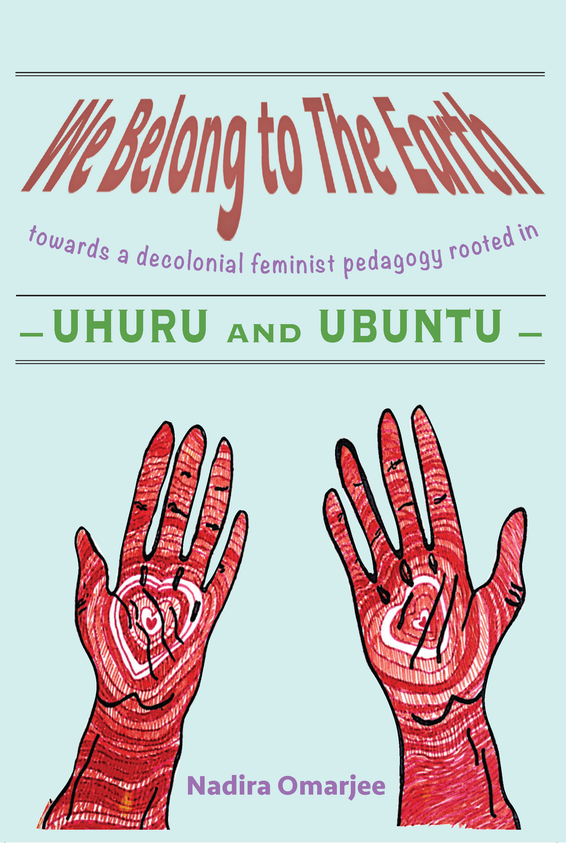Notions of supremacy of being that are borne out of coloniality can be challenged by reimagining ourselves as one of the many species that inhabits the Earth. In the book “We Belong to the Earth …”, scholar Nadira Omarjee explores concepts such as interconnectedness and oneness of being by using African radical communitarian philosophies of Uhuru and Ubuntu. During this book launch we will delve further into this discussion by asking ourselves: how can we decolonise the self and our different relationships to the Earth, each other and all living beings? The session will be an intimate conversation between friends, Nadira Omarjee and Guno Jones, who will react to the new book, whilst Max de Ploeg moderates the discussion. There will be sufficient time for Q&A.
more information about the book you can find here
More about the speakers
Nadira Omarjee is a decolonial feminist scholar, working internationally. Previously, she was a Senior Researcher at the Nordic Africa Institute on the Africa Scholar Programme at Uppsala University, Sweden. She is currently a Research Associate with the Identity, Diversity and Inclusion (IDI) Research Group in the Sociology Department at the Vrije Universiteit Amsterdam. Her previous book dealt with questions on decolonising academia by following the decolonial student movements in Cape Town and Amsterdam: Reimagining the Dream: Decolonising Academia by Putting the Last First (2018). Her current research interest focuses on decolonial feminist pedagogies with her latest book: We belong to the Earth: towards a decolonial feminist inquiry rooted in Uhuru and Ubuntu. This book deals specifically with the ways in which ‘conscientisation’ can lead toward justice and healing. It attempts to connect the classroom to the community by inserting lived experiences against epistemicides: the personal is political. She has experimented with flipping the classroom using Freirian’s (1970) concepts of learning through sharing; connecting ontology with epistemology by bridging art, activism and scholarship.
Guno Jones is an interdisciplinary scholar whose principal interests include political discourses on citizenship, postcolonial migration and the nation in the Netherlands, Belgium, and the United Kingdom; politics of World War II heritage in the Netherlands and its former colonies; the afterlives of colonialism and slavery in the Netherlands; legal histories of conquest, slavery, and indenture; and European political constructions and regulations of inter-racialized intimacies.







